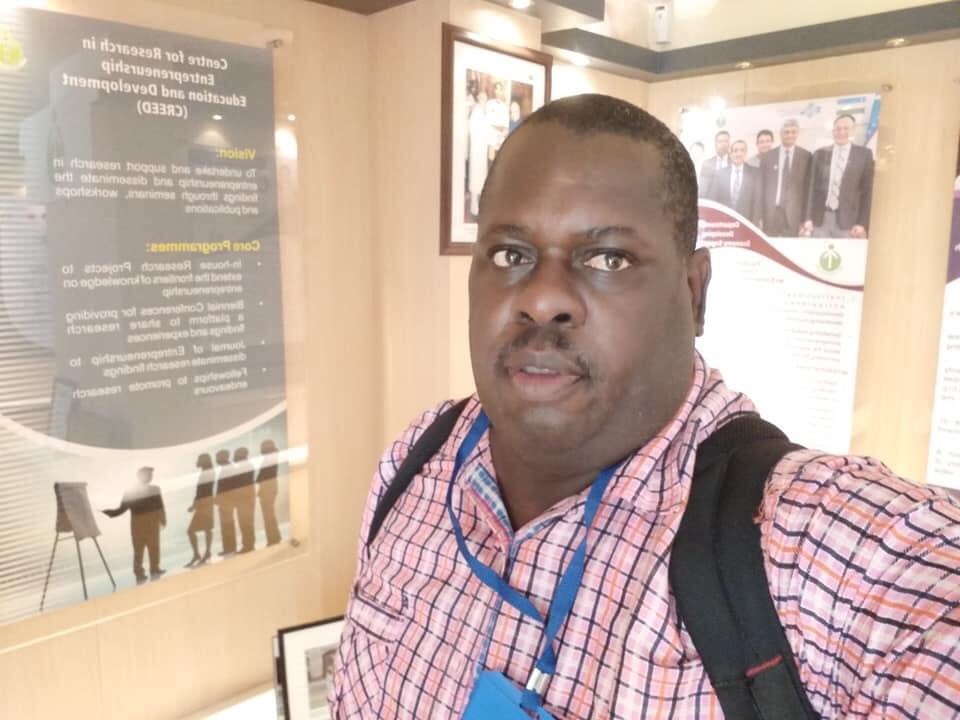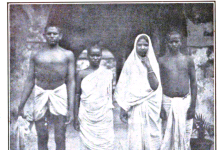By Utamu Belle
What was initially expected to be a six-week educational trip to India has turned into a lot more for Lindener Leon Roberts. Roberts is one of a few Guyanese who departed these shores and other parts of the world back in February, to pursue an International Scholarship Training Programme offered by the Government of India through the Indian High Commission.
But while the majority of students made it back to their homelands before the closure of international airports due to the coronavirus disease (COVID-19) pandemic, Roberts is one of those who were left behind.
He departed Guyana on February 14 for India, where he pursued a course in Industrial, Infrastructure and Sustainable Project Preparation and Appraisal. The programme was conducted by the Entrepreneurship Development Institute of India and sponsored by the Government’s Ministry of External Affairs.
The Lindener arrived in India on February 17 and was scheduled to depart on March 29. If all had gone as planned, Roberts was expected to be back in Guyana on March 31.

In a telephone interview with the Sunday Times Magazine, the Lindener shared his experience on what it’s like being quarantined in a foreign country as the world faces major social and economic challenges as a result of the COVID-19 pandemic.
“The coronavirus situation happened, and so coming up to around the 16th of March… the officials for the course started realising that things were getting serious and they started trying to make arrangements to get persons back to Guyana. But what happened is that because of the distance and how I had travelled – I travelled through the Netherlands and Panama, I would have taken three days to get back home… So, by the time they were trying to get flights, of course all the flights got tied up and what not, and then Guyana announced that they’re closing the airports. So, I was left stranded,” Roberts related.
He said that most of the other students were able to secure flights out of India, with him and another three students being left behind. Roberts said overall, there were nearly 50 students from various countries who attended the training initially, with 21 of those from about 17 different countries accounting for his group alone.
“The Mongolian Government closed their airport early and Afghanistan did similarly, and then the Congo. So, all of us got stranded,” he said, explaining how the foursome got left behind.
Roberts explained that there were other Guyanese who were part of the programme, but they were fortunate to get back home before the lockdowns.
He is presently housed in a hostel on campus along with the three other overseas-based students who hail from Mongolia, the Democratic Republic of Congo, and Afghanistan respectively. Though he is safe, having been placed in quarantine, Roberts said he longed to be back in his home country.
“You got to really discipline your mind to actually prepare a kind of a schedule, so that you could live by the schedule – just to break the monotony. One of the first things is that I never got acclimatised to the change of time zones, so I find myself still sleeping on Guyana’s time which means I’m up all night here. During the day, it’s a total lockdown, nobody is moving,” he explained.
Roberts said thankfully he was at the mercy of the Indian High Commission, which is in control of his travel itinerary and documents. The High Commission, he noted, is monitoring when the airports will be opened and he will be booked to return home as soon as this happens.
“I registered with the Guyana High Commission here in India as well, so they too, more than likely, are looking to see how they could assist me to get back home,” Roberts related.
Although he receives shelter and three square meals each day on the campus, Roberts disclosed that he was concerned as to how long the supplies would last. Additionally, he said there were challenges for the skeleton staff on campus to go out and get food.
“I have shelter; I feel reasonably secure. The only concern that I have is whether or not they would be able to maintain food supplies in this place – food security. That is the only concern that I have. But so far, so good…It’s the uncertainty of waking up in the morning not knowing… (fearing) that everything cut off and you don’t know what to do,” he shared.
Roberts added that he was in a community which is complete vegetarian, which presents a minor challenge, but he was coping. And he has gotten into the daily habit of saving some leftover food just in case. Painting a picture of the overall atmosphere at his location, Roberts related that the military was enforcing the lockdown and there were consequences for anyone who went against the rules.
Missing family, longing to be back home
Roberts is able to keep in touch with his family back home via the Internet as he had managed to purchase a SIM card. He recently suffered a great inconvenience, however, as the data had expired and he was without Internet connectivity for a few days. Luckily, he was able to replenish his data after getting into contact with someone during a chance encounter. But being a father of one and a sole breadwinner, Roberts is much worried about his family back home.
“I have my 17-year-old son at home with his grandmother, who is a pensioner, so I still have to, while I’m here be trying to figure out how I’m going to provide for them back home…they depend on me. So, at the moment, I’m out of a job. They’re existing basically on my savings and my mom’s pension,” he disclosed.
Meanwhile, he tries to occupy his time meaningfully. Daily he dedicates some time to reading, talking on the phone with his family back home, and walking on the campus just for a little exercise.
As the days go by and uncertainty looms, Roberts is longing to return to his homeland. He said he was made aware of persons expressing sentiments online that those overseas at this time should be left there. This, he sees, as unreasonable thinking.
“I just want to say that it’s the first time in my entire life that they made me question whether or not I am Guyanese and I really think I am still entitled to every facility that any other Guyanese is entitled to, including the ability to be home. I understand fully the health situation and I understand that there will be a quarantine… As a matter of fact, I am under a quarantine right now, but an individual’s fear of the health situation in the world should not rob me of my birth right entitlement to be in Guyana as a Guyanese. I’m equally entitled to it, and so once something could be done to mitigate the risk that I might present to other Guyanese, it should be done and not just simply say that you got to ‘stay where you deh’,” he said.
Roberts posits that this idea expressed by some only makes him feel like a stateless person. He opined that this should not be the tone of any responsible Guyanese from any political arena or otherwise. He said instead, it should be a case whereby all options should be explored in an effort to have Guyanese return home in a manner that is safe for them as well as the rest of the population.
“You can’t just simply say that people need to stay where they are. You don’t know the circumstances that they’re under, and I don’t say that for myself. All things being equal, I am in a better position than most, but if, let’s say, somebody is in a foreign country in a cold climate on the street, they are entitled to be back home in Guyana,” he reasoned.
In the meantime, Roberts continues to pursue humanitarian work through the non-profit Non-Governmental Organisation Sexual Assault and Family Education (SAFE) Guyana Inc from his location. The organisation is presently assisting vulnerable families in his hometown who are affected by the COVID-19 pandemic, through the distribution of food and hygiene hampers.











